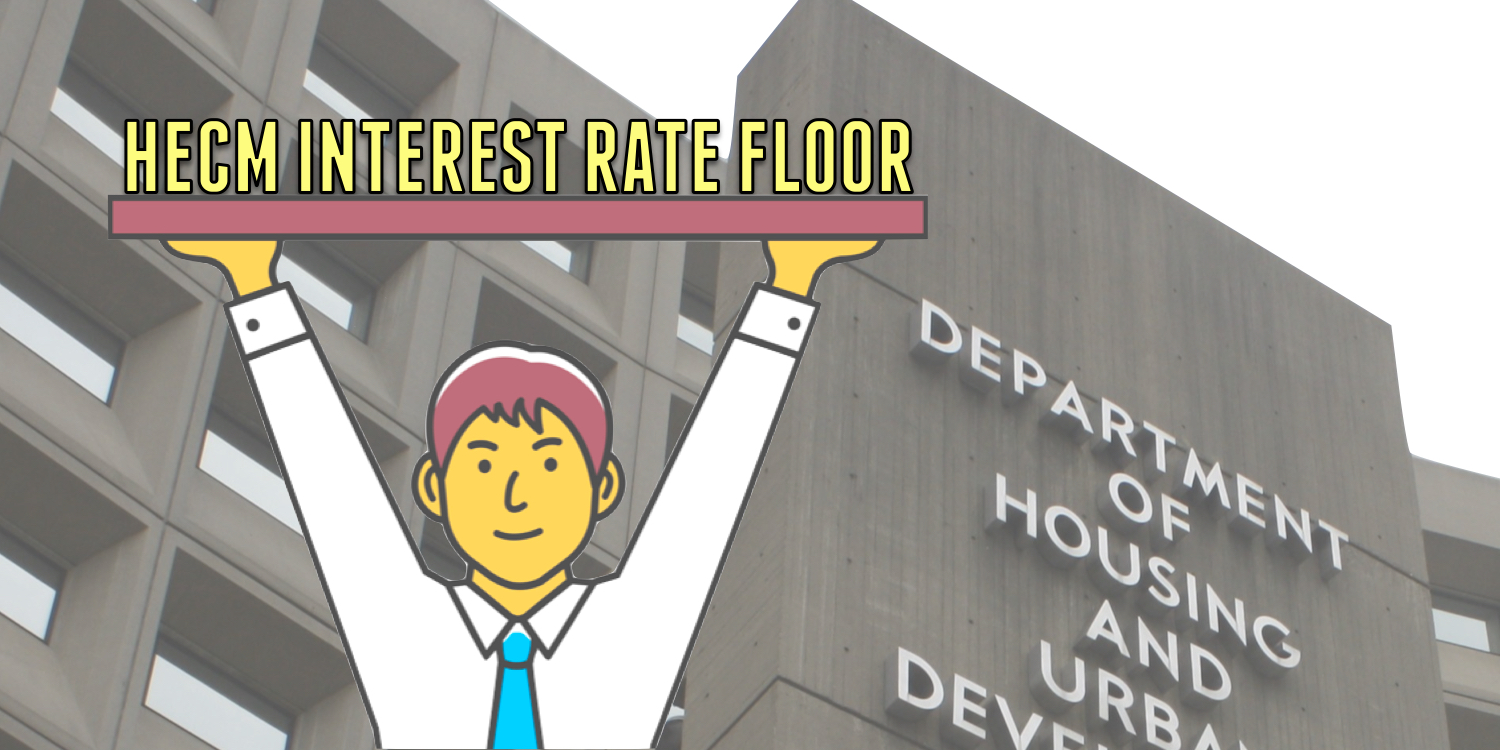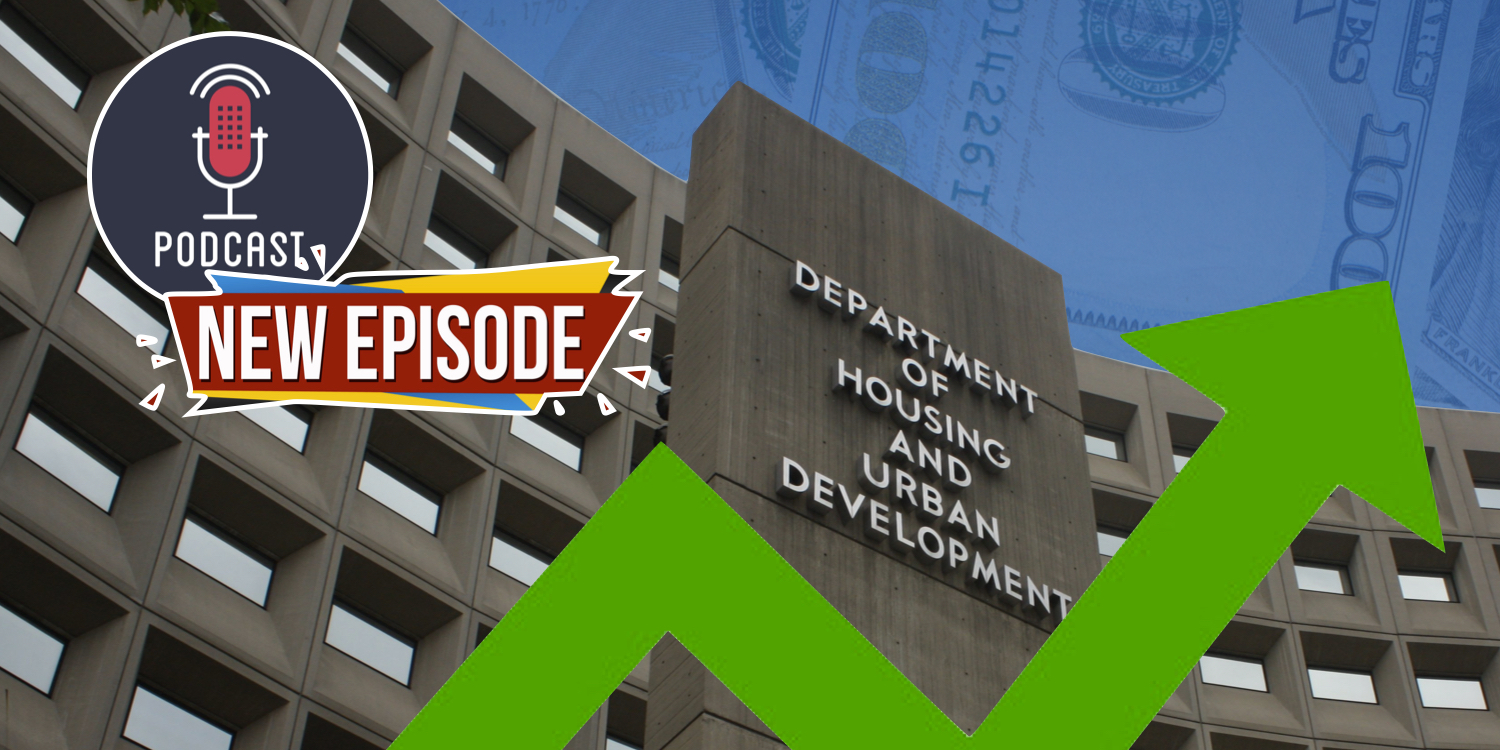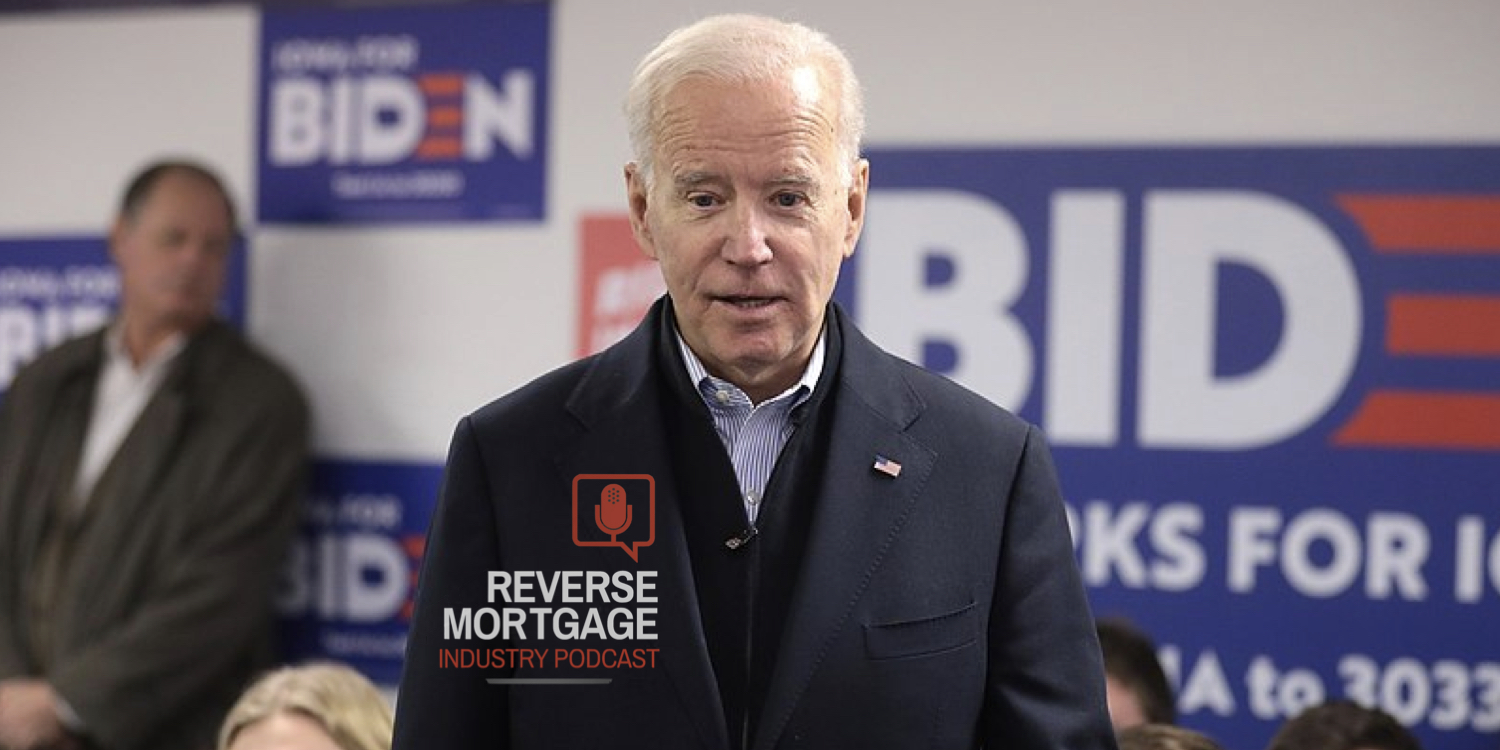Why it’s time for HUD to increase the HECM’s interest rate floor.
Continue readingThe HECM’s 2021 performance likely best 2020
Unable to use the embedded player? Listen here.
EPISODE #695
It’s less about preserving equity and more about cash flow
With millions of first-time homebuyers finding few suitable housing options and tenants enduring the ravages of rent hikes, some are sitting on a mountain of home equity whilst needing a significant boost to their monthly cash flow.
.
Other Stories:
-
HECM is an important part of HUD providing housing stability- MMI fund may show marked improvement
-
How To Avoid Reverse Mortgage Lending Traps
The Reverse Mortgage PARADOX
Despite being a government-sponsored and supervised loan reverse mortgages are rarely mentioned by housing agencies when discussing senior housing insecurity, foreclosure risks, and quality of life. It’s the reverse mortgage paradox.
Continue readingIs the HECM Durable or a Drain?
Despite improvements, the HECM remains a reliable target of fiscal scrutiny
In its Fiscal Year, 2020 Financial Report the Department of Housing and Urban Development called out the HECM program saying it ‘undermines’ the financial soundness of FHA’s Mutual Mortgage Insurance Fund which backs both HECMs and traditional FHA loans. There have also been repeated statements that the program is being subsidized by traditional FHA mortgages- a claim that has been recently challenged in a recent blog post by New View Advisors writing,
[read more]
“We think Forward Mortgage does not subsidize Reverse Mortgage now any more than Reverse Mortgage subsidized Forward Mortgage in 2009. A true subsidy would mean outsized realized HECM losses, and a compelling case that this will continue. This is not demonstrated in the report.” New View concluded by referencing a recent revision to the Actuarial review of FHA’s insurance fund. That revision increased the HECM’s economic net worth in the MMI fund from a negative $5.4 billion to a positive $1.268 billion. That revision was made after Jim Veale- an industry watcher and HECM originator contacted Pinnacle Actuaries in late November. Veale noted a discrepancy between the actuaries calculation of Total Capital Resources of a negative $5.64 billion versus a positive $1.597 billion shown in HUD’s report to Congress. As a result, Pinnacle updated their report which now has added $7 billion dollars to make the HECM’s economic net worth a positive $1.2 billion. This strengthens the argument that the HECM is presently not a drag on the overall FHA fund which backs the program.
Looking back the HUD’s recent annual report released December 4th, one area of concern that rightly deserves focused effort and attention is monitoring the servicers of loans that have been been placed into assignment with HUD. That oversight is crucial as HUD states the majority of losses from Type 1 claims are the result of the borrowers no longer occupying the home as their primary residence (or in some cases even living in the property at all) and the failure to pay property charges such as taxes and insurance. Such instances call for active and prompt intervention by assigned HUD servicing vendors to preserve the economic values of properties, and preventing occupancy fraud- both which stand to substantially contribute to continued and avoidable insurance claims and losses.
HUD Secretary Ben Carson’s comments became somewhat political in the December 9th official HUD press release which accompanied the agency’s financial report which reads in part, “When an institution becomes insulated from the success or failure of its policies, it loses its incentive to operate efficiently. Private businesses, while engaged in different work than the federal government, do not have the luxury of being protected from their failures or maintaining damaging courses of action,” adding, “Irv Dennis was able to accomplish the impossible task of providing the financial stability that had gone left unchecked for so many years.” Keep in mind, January will bring us a new administration and agency heads which are certain to have a direct impact on housing policy and the HECM program.
Setting politics aside much has been accomplished to improve the HECM program since the great recession of 2009. However, merely increasing oversight of lenders. “HUD must strengthen its effort to ensure that the lenders participating in the HECM program comply with its regulatory and administrative requirements and minimize claim costs” reads the agency’s 2020 financial report. With very few notable exceptions, HECM lenders have worked closely with HUD to ensure ethical and efficient lending to today’s older homeowners. Chances are that the largest liabilities to the economic value of the program can be found in the servicing of assigned loans for non-compliant borrowers as mentioned earlier, and reexamining the structural change of upfront FHA insurance premiums charged made in October 2017.
[/read]
Podcast E648: Some Worried About a Revived CFPB
Unable to use the embedded player? Listen here.
Wallstreet isn’t the only one worried about a revived CFPB
“Banks should be prepared for more aggressive enforcement and an expansion of the CFPB’s authority through its rulemakings,” said Rachel Rodman, a former CFPB lawyer who now represents banks as a partner at Cadwalader, Wickersham & Taft LLP in Washington. She expects the agency to be “more likely to bring an enforcement action, pursue novel legal theories and more likely to demand higher penalties.”
.
Other Stories:
-
Biden has chosen our future Secretary of Housing and Urban Development
-
Here’s how a reverse mortgage can help high-net-worth clients
Podcast E645: Who will be the next HUD Secretary?
Unable to use the embedded player? Listen here.
HECM Program Improves Valuation in FY 2020
A recent New York Times piece speculates who are the most likely candidates to take the helm of the Department of Housing and Urban Development in a Biden Administration
Other Stories:
The 2019 HECM FHA Report to Congress
What you need to know about FHA’s Report to Congress on the Home Equity Conversion Mortgage
[Download transcript]
Each year reverse mortgage lenders, originators and other mortgage market participants eagerly await the release of the Federal Housing Administration’s report to Congress on the financial status of the Mutual Mortgage Insurance Fund.
The good news is that the valuation of the HECM portion of FHA’s portfolio improved by over 50% in a single fiscal year from a negative valuation of -$13.63 billion in 2018 to a negative $5.92 billion in 2019. Why are we seeing such a rapid and marked improvement?
The comments of FHA Commissioner Brian Montgomery during a press call last Thursday may shed some light. “The improvements we’ve begun to put in place in the last two years to stem the losses of the reverse mortgage portfolio, aided by favorable economic conditions, are contributing to some improvements in our reverse mortgage portfolio.”
Pending HECM Changes: The Industry Waits
Proposed changes linger after Congressional hearing
As one commenter on HECMWorld put it ‘The HECM program got through the hearing all but unscathed’. Very true considering our long history of continued reductions in Principal Limit Factors and restrictions on how proceeds are distributed. That being said, we have several significant HECM changes that have yet to be finalized or announced with an implementation date which has many of our viewers asking when if these changes will be finalized, and if so when.
Of the three most notable changes, two are legislative requiring Congressional approval. The first is an unnamed pending House resolution which would eliminate the national lending limit for HECMs and instead revert back to county-by-county lending limits- or the FHA area maximum loan limit. How such a change would reduce FHA’s risk exposure from HECM loans remains to be seen. Homeowners with higher valued homes in rural counties stand to be impacted the most.
The second would be the removal of the HECM from the
Loan Limits: A ‘What If” Scenario
The potential removal of the HECM’s national loan limit presents disparities in neighboring counties
The updated Housing Finance Reform Plan is ambitious in both its scope and impact on the housing industry and more particularly reverse mortgage industry participants. One of the proposed changes to the HECM (Home Equity Conversion Mortgage) is the removal of the national loan limit and a return to the county-by-county structure of yesteryear. Such a change requires Congressional approval.
[ FHA MORTGAGE LIMIT CALCULATOR ]
In 2019 HUD increased lending limits for most counties across the U.S. However, those unfamiliar with the localized caps may be surprised at local disparities. For instance, the offices of Reverse Focus are located in Shasta County- situated 2 hours south of the Oregon border. The current FHA loan limit for Shasta county is $314,827- a price few homes fall below. Yet just a short 20-minute drive south in Tehama county (where average home sale prices are considerably less) the loan limit is strangely the same- a scenario likely to be replayed throughout the markets of many HECM professionals.

All which brings us to the question of what if Congress removes the HECM program’s national limit? It would be expected that higher-valued homeowners on both coasts would stand to benefit the most under FHA’s high-cost areas cap under which we’ve functioned since the passage of the Housing & Economic Recovery Act (HERA) of 2008. It would also open a significant opportunity for the creation of private/proprietary reverse mortgages for those with homes that exceed the reduced county limits and fall below today’s cap of $726, 525.
While no PLF (principal limit factor) cuts have been announced, the repeal of the HECM’s national lending limit would cut much deeper for higher-valued homes in lower-cost MSAs.
BREAKING: Major HECM Changes Announced
HECM-to-HECM Refis Targeted, Appraisal Scrutiny & More
Late last Thursday afternoon we received word that the Department of Housing and Urban Development (HUD) in cooperation with the Treasury Department presented President Donald Trump with their plan for reforming the Nation’s housing finance system and the Home Equity Conversion Mortgage program. This was in response to President Trump’s March 2019 memorandum for housing finance reform.
First the good news- there are no indications of further HECM principal limit factor (PLF) reductions or dropping the current interest rate floor. Second- you may want to watch the current national lending limit for federally-insured reverse mortgages. HUD is recommending Congressional approval to…












